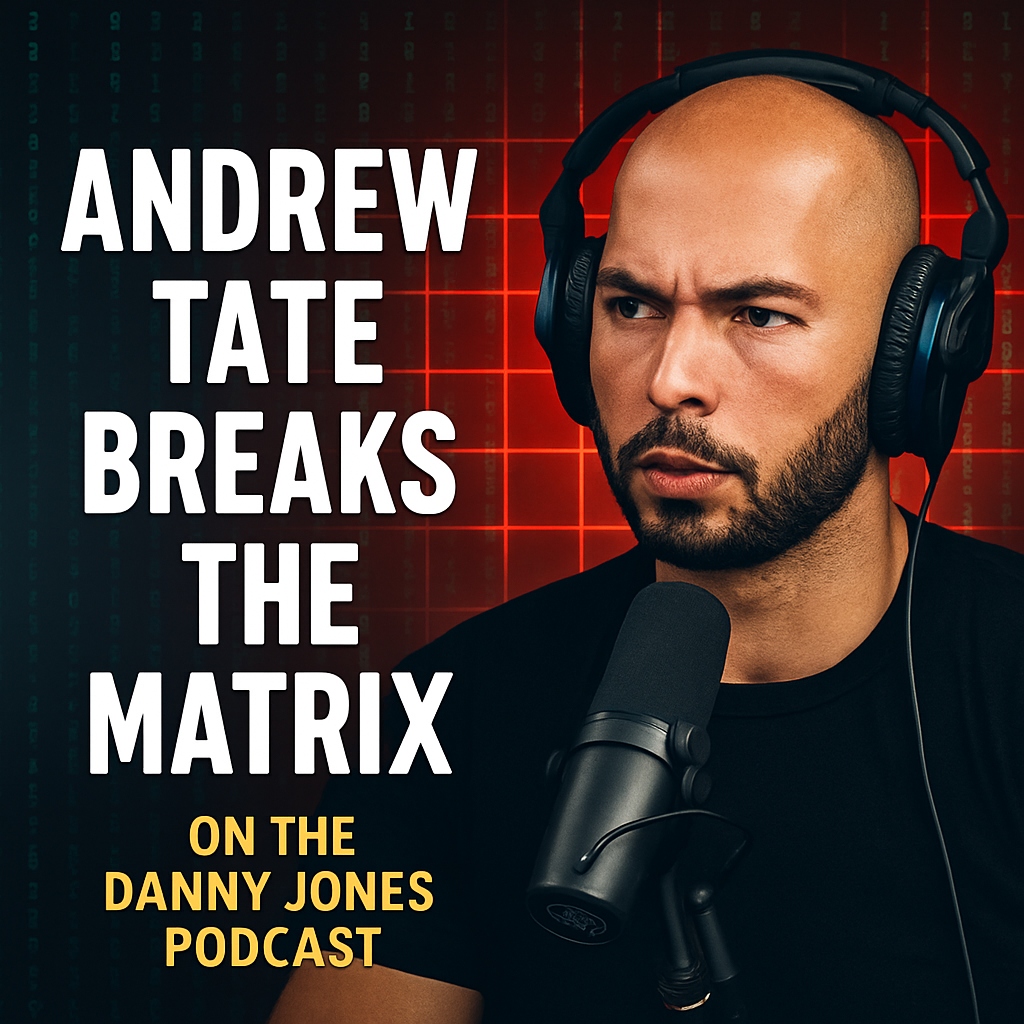Andrew Tate on the Danny Jones Podcast: Censorship, Masculinity, and the Digital War

Here’s a full blog post based on the video transcript from the Danny Jones Podcast featuring Andrew Tate, titled "The Matrix vs. Masculinity: Why Andrew Tate Refuses to Be Canceled":
The Matrix vs. Masculinity: Why Andrew Tate Refuses to Be Canceled
By Rafael Benavente
Love him or hate him, Andrew Tate has become one of the most polarizing figures in modern digital culture. A former kickboxing world champion turned entrepreneur, social commentator, and internet firebrand, Tate’s unapologetic views on masculinity, personal responsibility, and power have drawn millions of followers — and nearly as many critics.
In a gripping interview on the Danny Jones Podcast, Tate breaks down the architecture of what he calls “The Matrix” — not as a fictional world, but as a system of control designed to silence men, discourage independence, and censor non-conformist voices. His take is bold, defiant, and, to many, deeply controversial.
“They Want You Weak, Obedient, and Broke.”
Tate argues that the world is increasingly engineered to keep people distracted, dependent, and docile. Governments, corporations, and media institutions — the so-called “Matrix” — function as gatekeepers of thought. According to him, this system punishes those who step outside its narrative.
“If you tell the truth too much, they’re going to cancel you, delete you, or try to destroy your life.”
This isn’t just conspiracy talk, Tate insists — it’s his lived experience. He recounts being deplatformed across social media, vilified in the press, and subjected to multiple investigations, all while his message was resonating with millions of young men who feel alienated and lost in a world that demonizes masculinity.
On Masculinity: “They Call It Toxic Because It’s Powerful.”
One of Tate’s most consistent themes is the demonization of traditional male traits: strength, assertiveness, competitiveness, leadership. He argues that what’s now labeled as “toxic masculinity” is often just a caricature of natural male energy — and that the modern world is trying to suppress it.
“They want to feminize men, demoralize them, and take away their fire.”
Tate isn’t preaching brute force or aggression, but rather discipline, purpose, resilience, and sovereignty. To him, men who cultivate these qualities pose a threat to centralized power structures — which is why the system works so hard to suppress them.
Why He’s Still Winning — Even After Cancellation
Despite the coordinated takedowns, Tate’s reach has only grown. He claims that his private network, The Real World, has amassed hundreds of thousands of students worldwide who are learning finance, fitness, communication, and entrepreneurial skills.
Tate explains that the key to surviving cancellation is decentralization — owning your platforms, controlling your brand, and empowering your community.
“They can’t stop the truth. They can only slow it down. But eventually, it breaks through.”
Whether one agrees with his philosophies or not, Tate’s success in the face of adversity reveals a shift in the culture: millions of people are hungry for messages that promote personal agency and defy censorship.
The Matrix Analogy — Is It Real?
Tate’s references to “The Matrix” might seem dramatic, but they’re not purely metaphorical. He likens today’s world to a digital prison where algorithms, groupthink, and fear of social punishment keep people compliant.
In this paradigm, freedom isn’t about political rights — it’s about mental liberation. Tate encourages listeners to think for themselves, resist default scripts, and embrace discomfort.
Critics, Consequences, and the Bigger Picture
Of course, Tate’s worldview isn’t without backlash. Critics accuse him of promoting misogyny, promoting toxic behavior, and spreading disinformation. Legal issues and accusations have also plagued his reputation.
Yet his core fanbase argues that these attacks prove his point: that society punishes dissent and uplifts submission.
For many young men who feel ignored, Tate is a symbol of strength — someone who speaks unfiltered truth regardless of the cost. For others, he's a dangerous provocateur fueling cultural division.
Conclusion: Message Over Messenger?
Whether you believe Andrew Tate is a voice for truth or a symptom of what’s wrong with modern culture, his conversation with Danny Jones serves as a mirror for a divided society.
There’s a growing hunger for meaning, self-reliance, and freedom in an increasingly managed world. Tate’s rise suggests that people aren’t just looking for influencers — they’re looking for insurgents.
Credits:
This blog was inspired by the Danny Jones Podcast episode featuring Andrew Tate. All rights to the original video and intellectual property belong to their respective creators. Highly recommend checking out Danny's interviews on his YouTube Channel.
